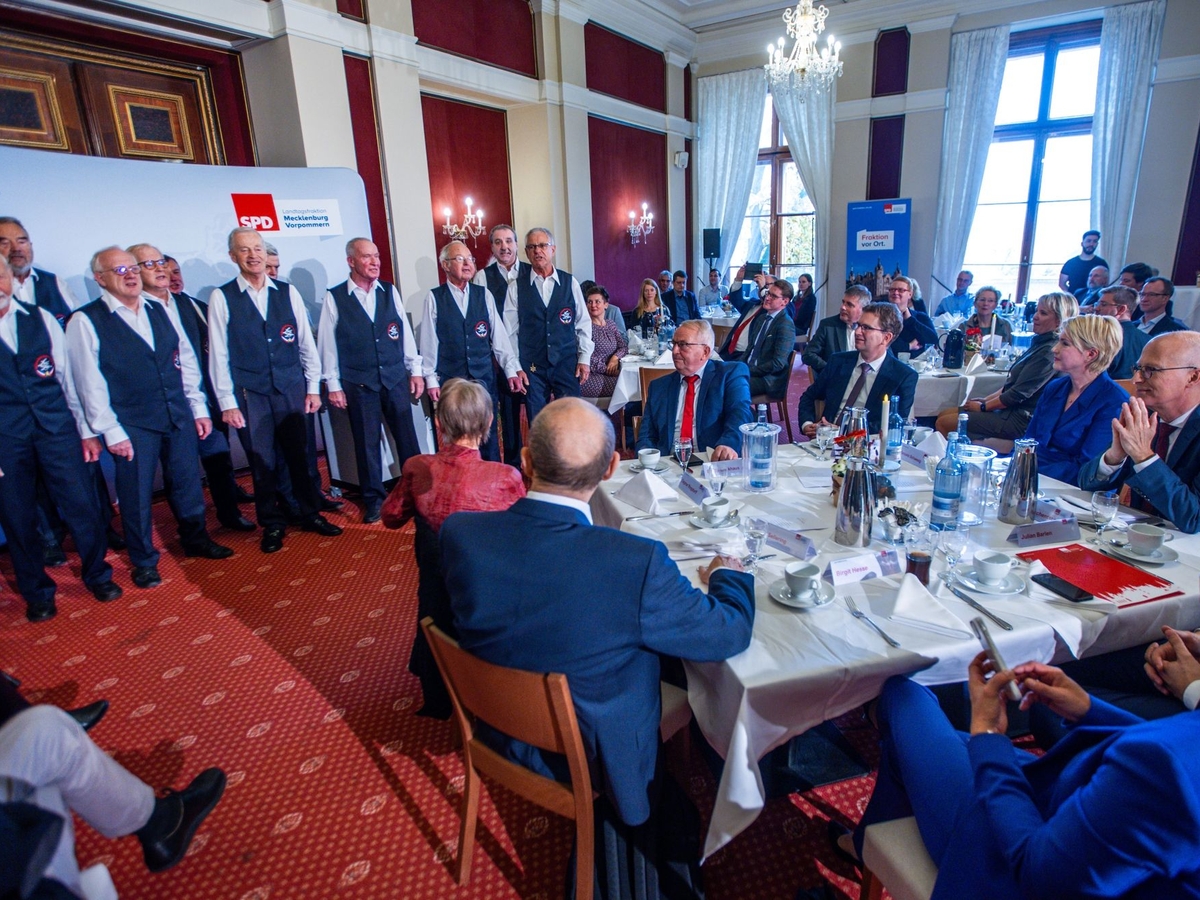Divided response to 25 years of SPD government responsibility
On the occasion of the SPD's 25 years in government in Mecklenburg-Vorpommern, the opposition FDP has called for more self-criticism from the Social Democrats. "It is time for the SPD to take stock seriously and recognize that the results after 25 years of government are disappointing," explained René Domke, leader of the FDP parliamentary group in the state parliament, on Friday in Schwerin.
He was reacting to the reception held by the SPD parliamentary group in the Schwerin state parliament on Thursday to commemorate the formation of the first SPD-led state government in Mecklenburg-Vorpommern on November 3, 1998. The focus was on the work of Harald Ringstorff as the first SPD Minister President in the state. The current head of government Manuela Schwesig (SPD) said that Ringstorff had taken over the leadership of a state that was still very much characterized by economic decline and had set the course for the subsequent upswing.
In Domke's opinion, the SPD has so far failed to come to terms with its failures. Mecklenburg-Vorpommern is lagging far behind in many areas and is still one of the economically weakest regions in Germany. "The SPD government has failed to promote sustainable economic development and attract investment. Income inequality in MV is alarmingly high compared to other federal states," Domke concluded. The education system is lagging behind in comparison to other federal states and digital connections are in a desolate state in many places.
Domke also accused the SPD of cronyism. "It is time to change from the arrogance of power that has developed over the years of government to cooperative leadership and not to reject and block everything that is put forward by others," the opposition politician emphasized and also directed criticism at Schwesig herself: "There needs to be a real change at the top."
The Left Party, the SPD's coalition partner, came to a different conclusion. The state has made history by forming the first red-red coalition in Germany, explained Left Party state leader Peter Ritter. "Mecklenburg-Vorpommern was in a different situation to today. Despite difficult conditions such as high unemployment, high levels of debt in the state budget and an economic downturn, both partners wanted to prove that the alliance was working and could demonstrate success. And the results are impressive," Ritter stated.
He cited the introduction of debt reduction, publicly subsidized employment and the introduction of youth and school social workers as examples. Red-Red had shown that this alliance could bring about noticeable changes for people, particularly in the social and economic areas.
From 1998 to 2006, Mecklenburg-Vorpommern was governed by a left-wing coalition, which was then followed by an alliance between the SPD and CDU that lasted 15 years. Since the 2021 state elections, the red-red coalition has been in power again.
- Amidst the critique from the opposition FDP, the SPD government in Mecklenburg-Vorpommern, led by Manuela Schwesig, has been urged to reflect on its 25 years of governance, with René Domke stating, "The results after 25 years of SPD government are disappointing."
- Contrasting this viewpoint, Peter Ritter from the Left Party, SPD's coalition partner, commends the red-red coalition, stating, "The results are impressive," citing improvements in debt reduction, publicly subsidized employment, and the introduction of youth and school social workers under their governance.
Source: www.dpa.com








